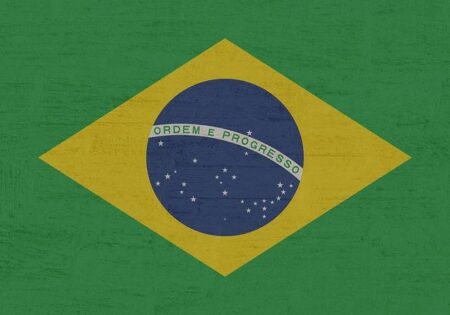In a concerted effort to address growing global inequality, Spain and Brazil have emerged as leading voices within the United Nations advocating for a robust international framework to tax the super-rich. As economic disparities widen in the aftermath of the COVID-19 pandemic, both governments are calling for renewed global action to implement fairer tax systems that hold the wealthiest individuals accountable. Their joint push underscores an urgent demand for coordinated policies aimed at curbing inequality and financing sustainable development worldwide, placing the issue of wealth taxation firmly on the UN agenda.
Spain and Brazil Lead Global Initiative for Wealth Tax to Reduce Inequality
In a landmark move that has captured international attention, Spain and Brazil have spearheaded a coalition urging the global community to implement a wealth tax aimed at addressing the widening gap between the ultra-wealthy and the rest of society. Both nations emphasize that redistributive fiscal policies are essential to foster social equity, enhance public services, and fund sustainable development initiatives. The proposed tax would specifically target individuals with extraordinary net worths, with revenue directed towards reducing poverty and investing in education and healthcare.
Advocates of the initiative argue that the concentrated accumulation of wealth by a small elite undermines economic stability and social cohesion worldwide. The coalition has outlined several key goals, including:
- Establishing a minimum effective tax rate on fortunes exceeding $50 million
- Enhancing international cooperation to close tax loopholes
- Promoting transparency and accountability in wealth declarations
- Channelling funds to climate resilience and social safety nets
| Country | Estimated Wealth Tax Rate | Projected Annual Revenue (USD Billions) |
|---|---|---|
| Spain | 3.5% | 7.2 |
| Brazil | 4.0% | 10.5 |
| Proposed Global Average | 3.8% | 150+ |
UN Officials Endorse Coordinated Measures to Target Super-Rich Tax Avoidance
Senior United Nations officials have voiced strong support for enhanced international collaboration aimed at dismantling tax avoidance schemes employed by the world’s wealthiest individuals. This collective push emerges as Spain and Brazil champion a global framework designed to ensure that the super-rich contribute their fair share, reinforcing efforts to mitigate widening economic inequality. Such measures are expected to fortify transparency, tighten financial scrutiny, and inject much-needed resources into public services worldwide.
Key areas of focus within this coordinated action include:
- Strengthening cross-border information exchange between tax authorities
- Implementing minimum global tax standards to prevent tax base erosion
- Cracking down on opaque investment structures used to shield wealth
- Promoting equitable fiscal policies to reduce socioeconomic disparities
| Country | Proposed Measure | Expected Outcome |
|---|---|---|
| Spain | Introduce wealth tax legislation | Increase in public revenue |
| Brazil | Expand transparency laws for offshore holdings | Improved tax compliance |
| Global Coalition | Establish global minimum tax rate | Reduce tax avoidance |
Policy Experts Call for Transparent International Framework to Ensure Fair Taxation
Leading economists and policy analysts have voiced strong support for the establishment of a clear, global framework to address unfair taxation practices that disproportionately benefit the ultra-wealthy. They argue that a lack of transparency in international tax regulations has allowed many high-net-worth individuals to exploit loopholes, often resulting in significant revenue losses for developing and developed nations alike. The experts emphasize that only with cohesive international cooperation can governments effectively track and tax the assets of the super-rich, which in turn could contribute meaningfully to reducing global inequality.
Key recommendations from policy experts include:
- Implementation of standardized reporting requirements for multinational corporations and offshore assets.
- Creation of a centralized global database to monitor wealth flows and tax compliance.
- Enhanced cooperation between tax authorities to prevent evasion and illicit financial activities.
| Country | Tax Revenue Lost (Estimated % GDP) | Proposed Measures |
|---|---|---|
| Spain | 2.3% | Global minimum tax & data exchange |
| Brazil | 3.1% | Wealth transparency laws & enforcement |
| Global Average | 2.7% | Unified international tax framework |
The Conclusion
As Spain and Brazil lead the charge at the United Nations to implement a global tax on the super-rich, their joint efforts underscore a growing international resolve to tackle rising economic inequality. This initiative, backed by a coalition of countries, signals a pivotal step toward reshaping the global financial landscape and ensuring a more equitable distribution of wealth. While significant challenges remain, the momentum generated by these two nations could pave the way for meaningful reforms in the pursuit of social justice worldwide. The coming months will be critical as the international community navigates the complexities of policy design and consensus-building to transform this ambitious vision into tangible action.




